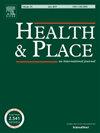印度尼西亚东部环境卫生领域妇女赋权的社会生态障碍。
IF 4.1
2区 医学
Q1 PUBLIC, ENVIRONMENTAL & OCCUPATIONAL HEALTH
引用次数: 0
摘要
在任何情况下,低收入和边缘化群体都受到水、环境卫生和个人卫生设施不足的影响,特别是妇女和女孩,她们主要由于性别不平等而受到不成比例的影响。本文以印度尼西亚东部龙目岛中部和西Manggarai的案例研究为基础,讨论了妇女获得和参与卫生项目的障碍。分别对28名举报人和6个小组进行了深度访谈和焦点小组讨论,并采用专题分析进行了分析。该研究发现,印度尼西亚东部的妇女和女孩获得卫生设施的机会不足,因为她们较少参与家庭和社区一级的讲卫生运动决策过程,同时还要承担维护设施和照顾家庭的双重负担。妇女在卫生项目中获得权力的障碍存在于不同的社会生态尺度上,从个人到结构尺度,这表明了健康与当地环境和特征的关系。在个人层面上,这些障碍是妇女缺乏意识、受教育程度低和经济地位低;父权文化对社会性别角色的期望,以及社会规范对女性流动的限制,都是社区层面的障碍。与此同时,在制度层面,障碍来自政府缺乏支持妇女参与的承诺和明确的指导方针,以及政府在其管辖范围内实施改变性别的WASH项目的能力和技能。所有不同程度的障碍都是相互关联的,需要采取全面和系统的战略,同时解决阻碍性别问题在国家卫生规划中主流化的障碍。本文章由计算机程序翻译,如有差异,请以英文原文为准。
Socio-ecological barriers to women's empowerment in sanitation in Eastern Indonesia
Low-income and marginalised groups in any setting are affected by inadequate water, sanitation and hygiene (WASH) sanitation access, particularly women and girls who are disproportionately affected mainly because of gender inequality. This paper discusses barriers to women's access to and participation in sanitation programs based on the case study in Central Lombok and West Manggarai, Eastern Indonesia. In-depth interviews and focus group discussions were conducted on 28 informants and 6 groups, respectively, and analysed using thematic analysis. The study found that women and girls in Eastern Indonesia experience inadequate access to sanitation due to being less involved in WASH decision-making processes at household and community levels while having the double burden of maintaining the facilities and taking care of their families simultaneously. Barriers to women's empowerment in sanitation programs exist at different socio-ecological scales from individual to structural scales indicating the relationship of health with the context and characteristics of the place. At the individual scale, those barriers are women's lack of awareness, low education and economic status; gender-expected roles in society due to patriarchal cultures, and restrictions on women's mobility due to social norms are barriers at community scale. Meanwhile, at the institutional scale, the barriers come from the government's lack of commitment and clear guidelines to support women involvement and the government's lack of capacity and skills in implementing gender-transformative WASH programs in their jurisdiction areas. All different scales of barriers are interconnected, requiring comprehensive and systematic strategies to simultaneously address barriers to mainstreaming gender issues in national sanitation programs.
求助全文
通过发布文献求助,成功后即可免费获取论文全文。
去求助
来源期刊

Health & Place
PUBLIC, ENVIRONMENTAL & OCCUPATIONAL HEALTH-
CiteScore
7.70
自引率
6.20%
发文量
176
审稿时长
29 days
期刊介绍:
he journal is an interdisciplinary journal dedicated to the study of all aspects of health and health care in which place or location matters.
 求助内容:
求助内容: 应助结果提醒方式:
应助结果提醒方式:


